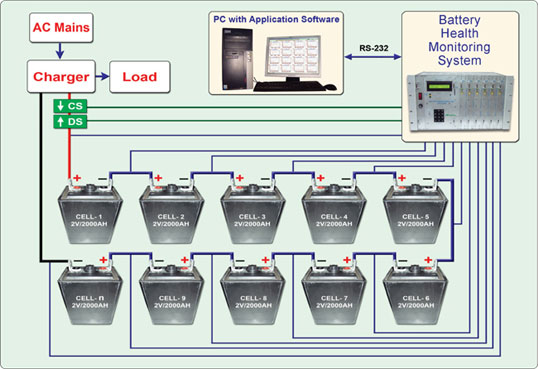
Why monitoring is necessary?
The main reasons for battery monitoring are:
• Increased system reliability
• Cost savings by reduced maintenance hours.
• Personnel safety
Increasing system reliability
Increasing system reliability by decreasing power shutdwon is clearly a massive cost saving. Sometimes, spending money to save money is a tough reasons to prove to company accountants, but when the cost of failure is compared to the cost of monitoring, it almost seems irresponsible not to consider it.
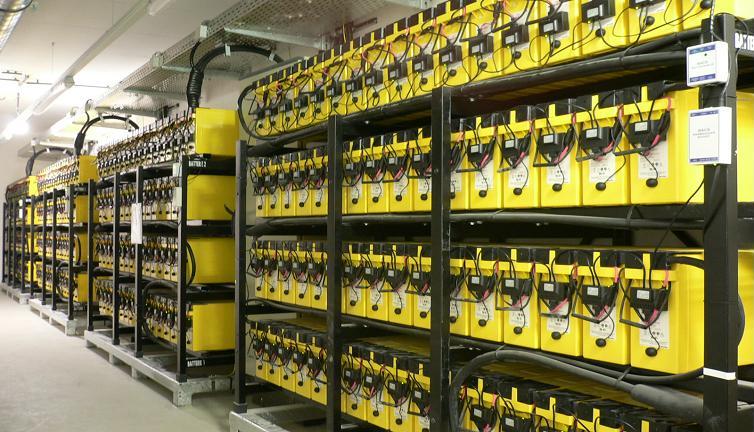
How monitoring improve UPS reliability?
Monitoring refine UPS reliability by detecting battery problems at an early stage, before they can cause an abrupt system failure.
How are problems detected?
Problems are detected by measuring the internal resistance of each cell . The resistance of a cell has been proven to be a reliable indicator of a battery’s state of health. The only other method for testing a battery’s condition is to perform a capacity test.
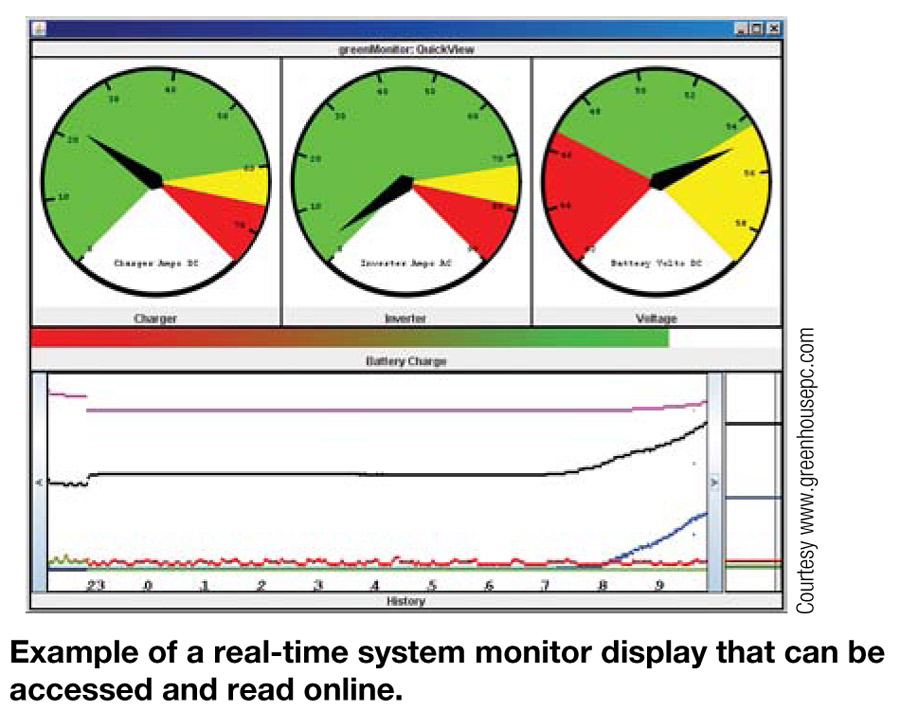
Cost savings
battery monitoring can provide cost savings by
1- Reducing maintenance time& reducing test costs.
2- Optimizing battery life.
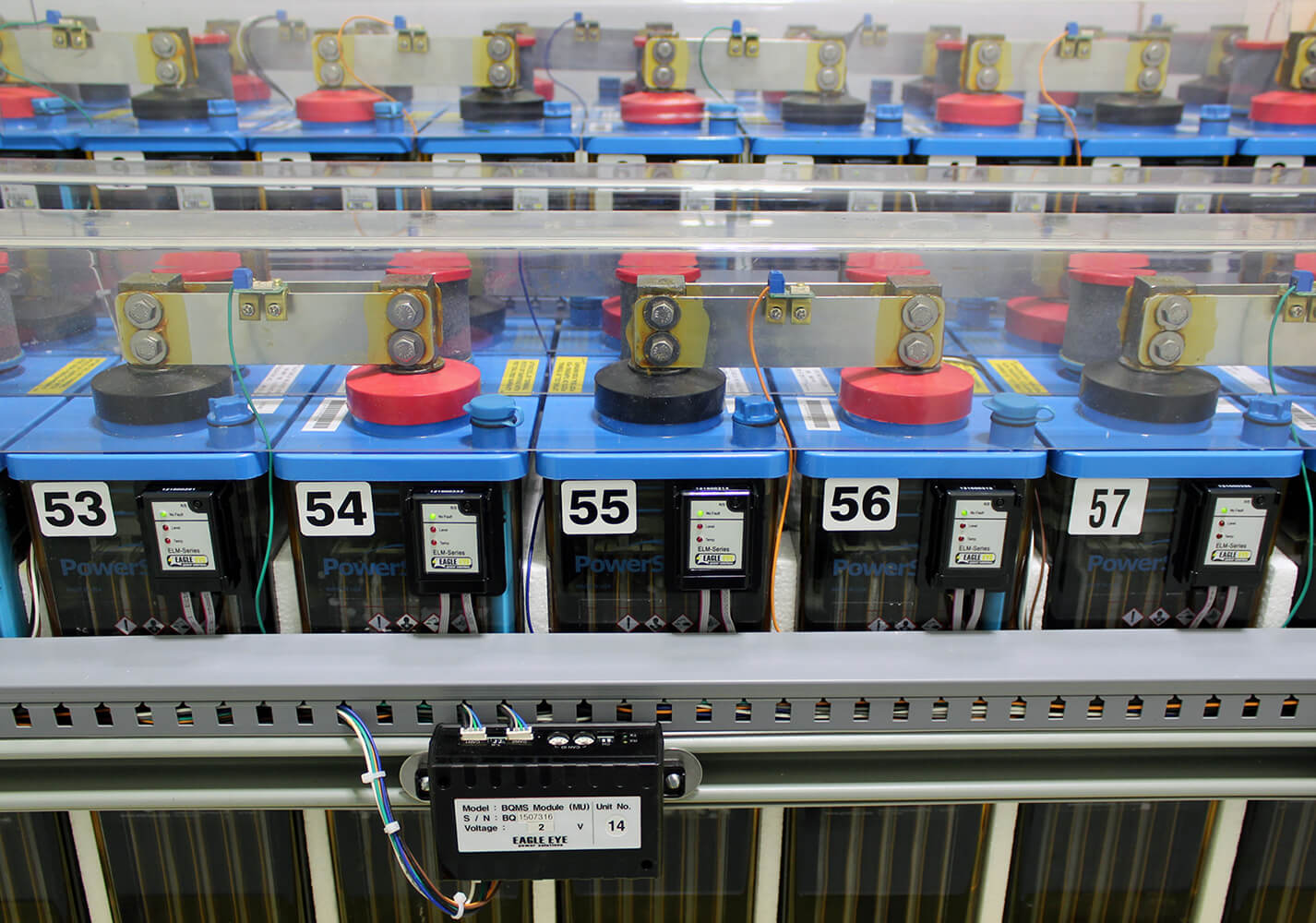
Safety
A permanently connected battery monitor reduces the need for maintenance personnel to directly contact the battery.
What parameters MUST BE monitored?
The following minimum parameters should be monitored:
• Overall string voltage. / checking the charging voltage
• Cell voltages. / checking the .
• Ambient temperature. checking temperature environment is as supplier recomendation or not / as the inceasing in temprerature affect battery lifes.
• Internal cell resistance. / checking low capacity cells.
• Intercell resistance. / checking the conduction path integrity and avoid possible fires and raped shutdowns.
• Load cycles. / check the number and depth of discharges.
• Load current. / checking current delivered by the battery
• Float current. / checking float current delivered by a battery
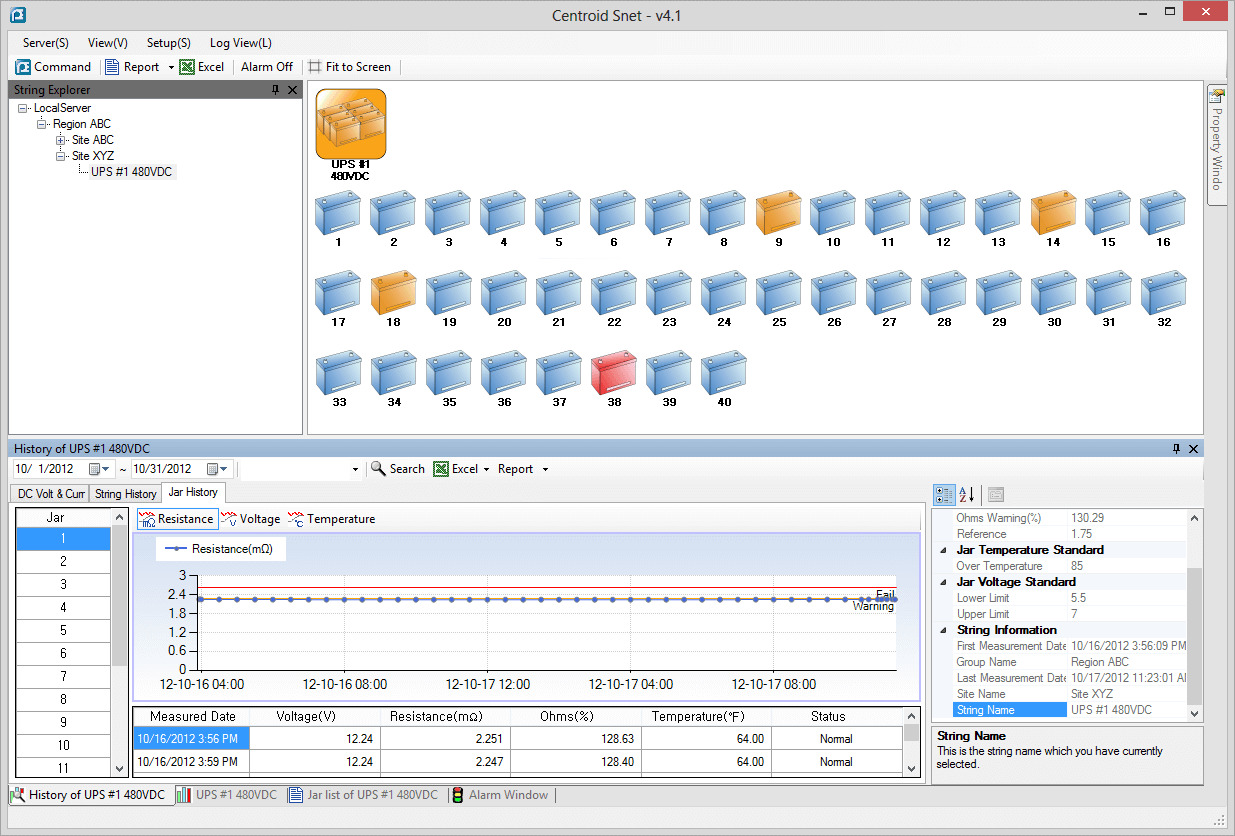

Name*
admin
admin